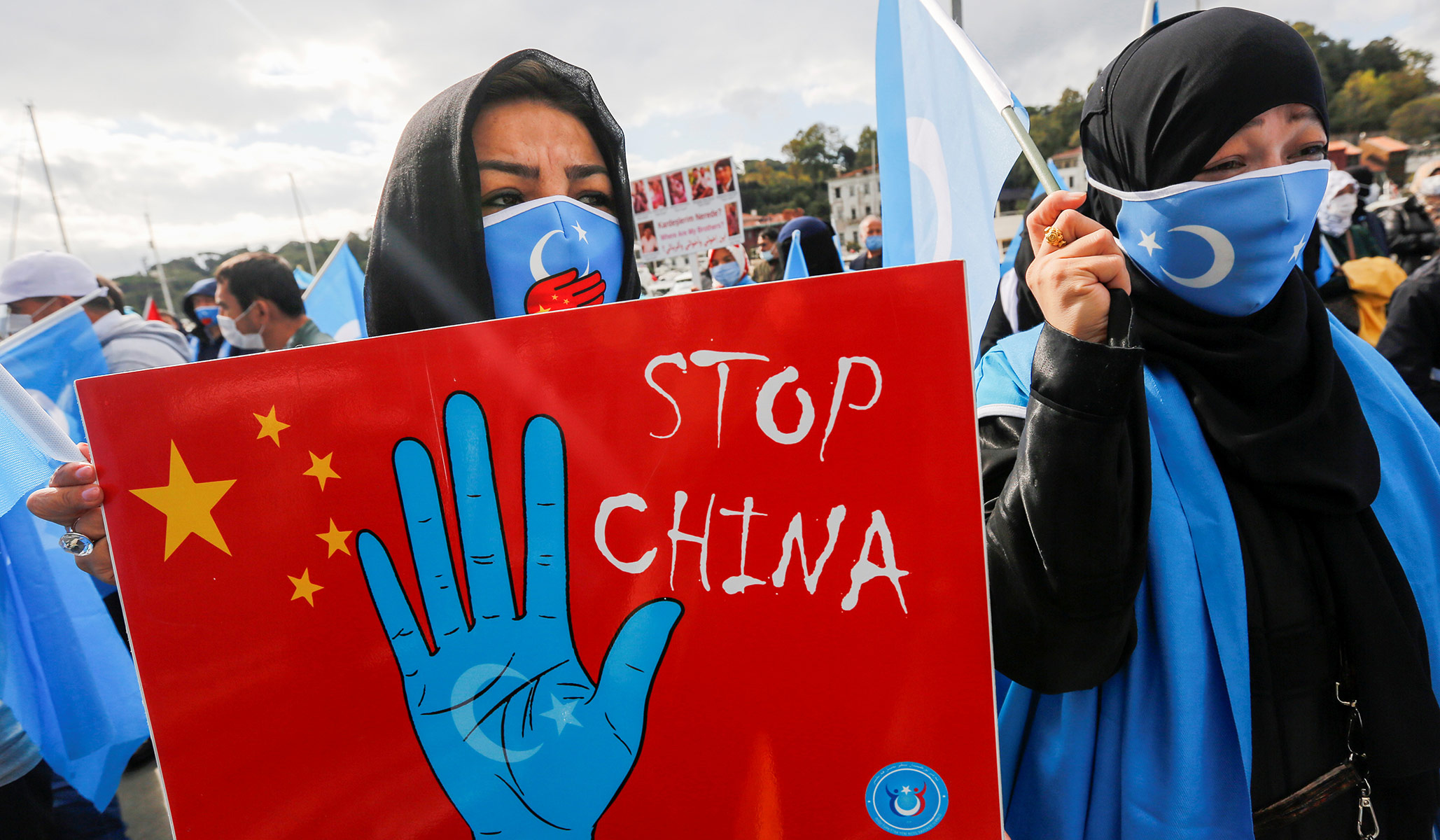
Biden administration officials took to their new posts earlier this year with the pledge that they are “putting human rights back at the center of U.S. foreign policy.” An ongoing congressional fight puts the lie to that promise.
According to a new report by Washington Post columnist Josh Rogin, deputy secretary of state Wendy Sherman expressed the administration’s desire to water down and slow-walk legislation addressing Uyghur forced labor during a call with Senator Jeff Merkley, a cosponsor of the Uyghur Forced Labor Prevention Act.
At issue was a core component of that bill — a provision that presumes any goods imported from the Xinjiang region were produced using forced labor, unless companies prove otherwise. This makes sense, considering that the tangled multinational supply chains with roots in Xinjiang regularly source materials produced with slave labor; it’s difficult to confirm which products are untainted and therefore in violation of U.S. law. But according to Rogin’s account, Sherman said the administration wanted “a more targeted and deliberative approach” and warned against a unilateral U.S. effort to address the problem.
Translation: Sherman wanted to significantly weaken the legislation. Despite lawyerly White House denials, the administration is clearly lobbying against the Uyghur Forced Labor Prevention Act — and it is doing so in a way that, as Rogin points out, lines up with the position of major corporations who also oppose the legislation.
Just as important, Sherman’s involvement indicates that the push against the initiative is more than the work of John Kerry, desperate to make cooperation with China on climate the top priority of the U.S., human rights be damned.
All of this makes it easier to understand a rank display of political gamesmanship that played out on Capitol Hill this week just ahead of Rogin’s scoop.
Senate Democrats blocked Senator Marco Rubio’s latest attempt to insert the Uyghur forced-labor legislation into the annual defense-authorization package. The Senate actually passed the Uyghur bill unanimously in July, but the House still hasn’t put it to a vote. Frustrated by the House’s delay, Rubio initially tried to get it into the defense bill a week before Thanksgiving but was blocked. He was stymied for the second time this week.
Senate majority Leader Chuck Schumer and Speaker Nancy Pelosi hid behind a procedural excuse, arguing that measures with a bearing on appropriations must begin in the House. But this was a smokescreen. For one, the legislation would have an “insignificant” impact on revenues and spending, according to the Congressional Budget Office. And if Pelosi had actually wanted to advance the act, she could have done so easily at any point since July.
Pelosi relented Thursday when she met with Representative Jim McGovern, an author of the House’s version of the forced-labor bill. Rubio had hinted that a House vote on the Uyghur legislation could get him to drop his objections to moving the NDAA process along. Just after his meeting with Pelosi, McGovern announced that his bill would indeed receive a vote in the House — a victory for Rubio.
But the act is still far from the finish line. Even if the House adopts McGovern’s bill, that would only begin a new process around that measure (which differs from the Senate version), and there would be many points at which the administration or corporate interests could continue to block or attempt to gut it.
In a hard-hitting floor speech Thursday coming to Rubio’s defense amid attacks by Schumer and Pelosi, Senator Mitt Romney pointed to a green motivation for opposition to the act: “Democrats want cheap batteries for their so-called Build Back Better agenda, and nearly 80 percent of the rare earths, including other materials like lithium and cobalt and the like that are used to make these batteries, come from China.”
Meanwhile, companies with sizable supply-chain footprints in Xinjiang will remain dug in against the bill. About a year ago, the New York Times reported that Apple, Nike, and Coke lobbied against key components of the legislation.
More broadly, following last month’s virtual summit between Biden and Xi Jinping, the White House will be focused on keeping dialogue with the party on track and free of stumbling blocks.
An effort to disentangle corporate American from an ongoing atrocity shouldn’t be consider an inconvenience to be dispensed with, though. If the U.S. is going to prevail in the geopolitical competition with China, it will require an effort on all fronts, not just involving a robust defense budget, strong alliances, and pushback against Chinese espionage and industrial theft, but a willingness to shine a light on the CCP’s grotesque human-rights abuses.
Rubio has been right to be relentless on this, and he should keep it up.